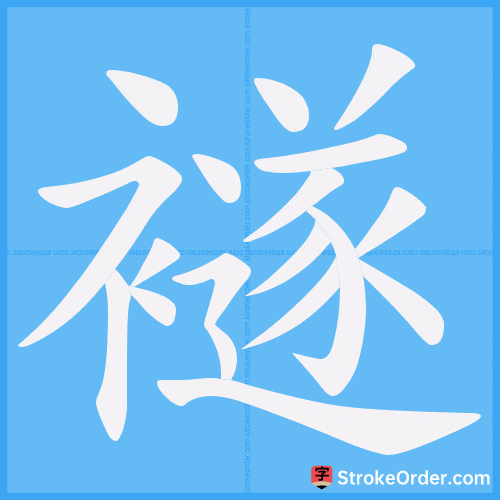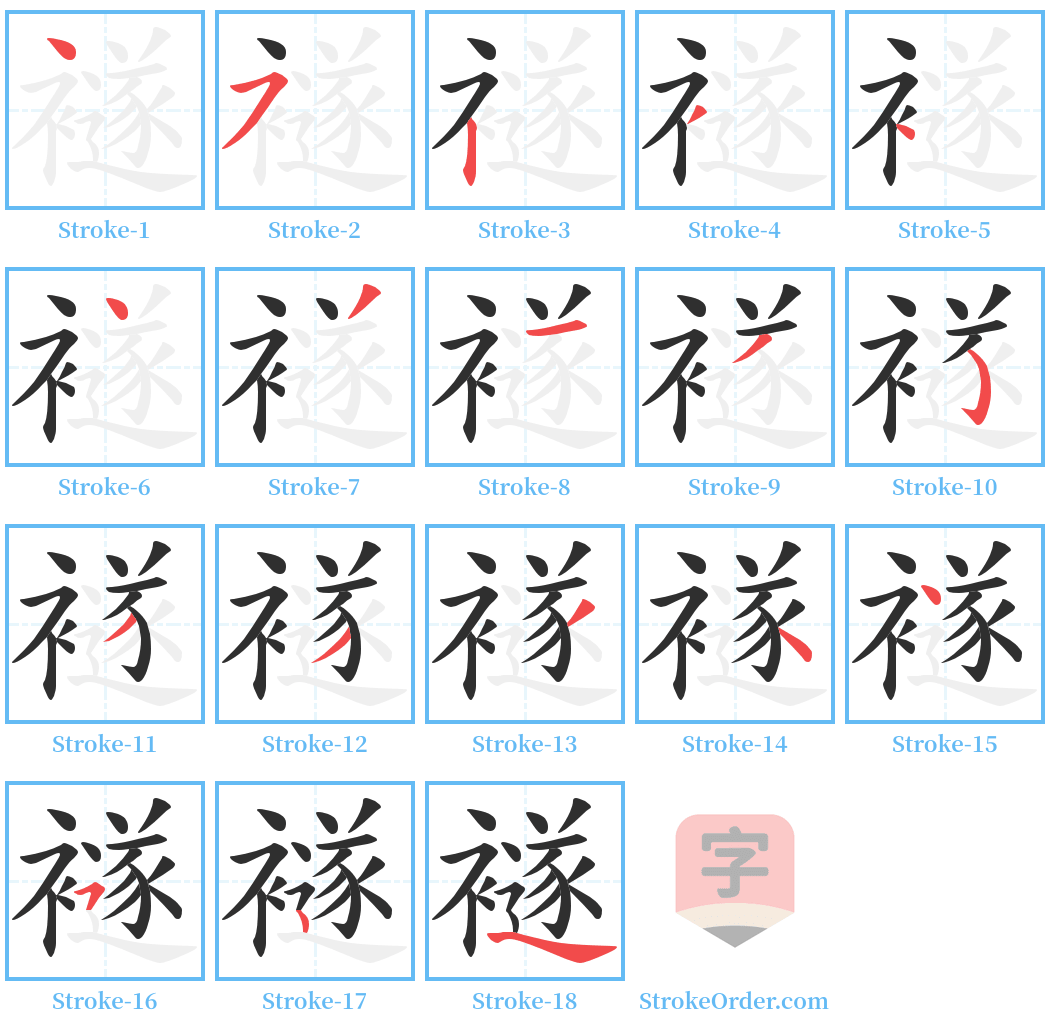襚 Stroke Order
Animated Stroke Order of 襚

Stroke Order Diagrams for 襚

Information of 襚
Pinyin
suì
Radical
衤
Strokes
17 strokes
Usage
★★
Definition
襚 [suì]
1. 赠给死者衣物。 (To present clothing to a deceased person.)
- 例: 楚人使公亲襚。 (The people of Chu requested their relatives to provide shrouds.)
2. 指向活人赠送衣物。 (To present clothing to a living person.)
3. 古代贯穿佩玉的丝织绶带。 (A silk ribbon used in ancient times for threading through jade ornaments.)
【引】
1. 《说文》:襚,衣死人也。从衣,遂声。 (According to the Shuowen, 襚 means to dress a deceased person. It combines the radical for clothing with the phonetic component.)
2. 《春秋传》:楚使公亲襚。 (From the Spring and Autumn Annals: The state of Chu dispatched relatives to provide shrouds.)
3. 《春秋说题辞》:襚遗也。 (From the commentary on the Spring and Autumn Annals: It refers to offering shrouds.)
【例】
- 又如: 亲襚 (personally dressing the deceased); 襚敛 (dressing the deceased for burial).
4. 向死者赠衣被。 (To present clothing and quilts to a deceased person.)
【引】
1. 《广雅》:襚,送也。货财曰赙,车马曰赗,衣衾曰襚。即袭也。 (From the Guangya: 襚 means to offer. Valuables are called 赙, carriages and horses are called 赗, and clothing and quilts are called 襚.)
【例】
- 又如: 襚礼 (the attire and everyday items presented to the deceased upon mourning); 向襚 (to present clothing to the deceased); 襚衣 (shroud garments that are given to a deceased person).
5. 赠活人衣服。 (To present clothing to a living person.)
【引】
1. 《西京杂记》:今日喜辰,贵姊懋膺洪册,谨上襚三十五条,以陈踊跃之心。 (From the Western Capital Miscellany: Today is a happy occasion, esteemed elder sister, I present thirty-five garments to express my heartfelt congratulations.)